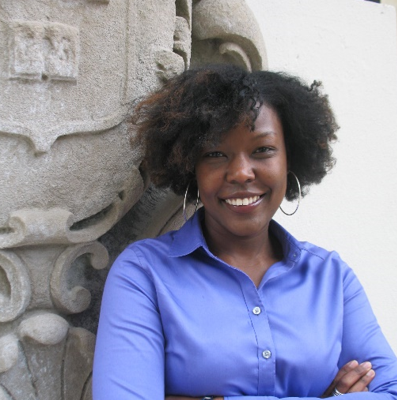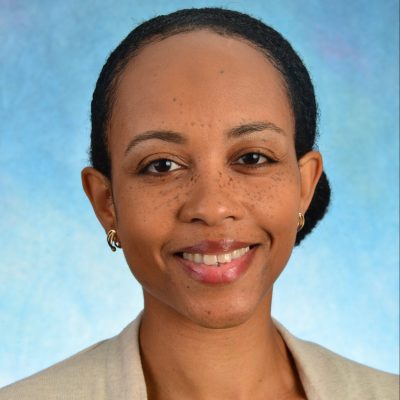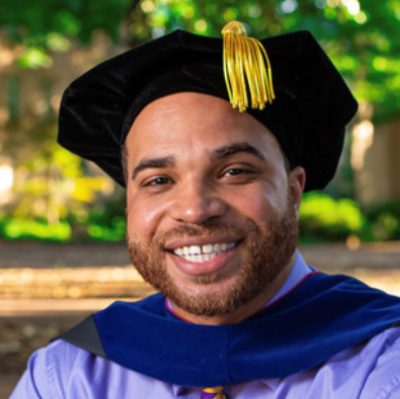Past Post-Doctoral Fellows
Karar Zunaid Ahsan, Ph.D., MIPH
Postdoctoral Research Associate
Karar “Zunaid” Ahsan has worked in the fields of monitoring and evaluation (M&E) and research in the health sector for over 15 years. Most recently he worked at MEASURE Evaluation at UNC, where he was Senior Research Associate and served as the M&E Advisor to the Program Management and Monitoring Unit (PMMU) of the Ministry of Health and Family Welfare in Bangladesh. Previously, he worked for the World Bank’s South Asia Health, Nutrition and Population Sector and the International Centre for Diarrhoeal Disease Research, Bangladesh (icddr,b) where he was involved in developing knowledge products and strategic analytical tasks on demographic and epidemiological transitions, health equity and health systems strengthening. He has authored more than 40 technical reports/book chapters and had 16 articles published in peer-reviewed journals. He has also presented in various international symposiums and conferences on issues related to policy and programs for health systems strengthening, monitoring and evaluation, and epidemiological and demographic transitions. He graduated in Applied Statistics from the University of Dhaka and earned a Master of International Public Health from the University of Sydney. He recently earned his Ph.D. from the Department of Maternal and Child Health in the Gillings School of Global Public Health at UNC.
Ahsan is currently an assistant professor in the Gillings School of Global Public Health.
Malcolm Bevel, Ph.D., MSPH
Postdoctoral Research Associate
Malcolm Bevel received his Ph.D. in Epidemiology and was a Grace Jordan McFadden Professors Program scholar at the University of South Carolina. He uses quantitative and qualitative methods to promote healthy lifestyle interventions in the African American community. Specifically, his interests are environmental and social determinants of health (e.g. residential racial segregation, food deserts/swamps) and how they impact the ability of the community to access resources for living a healthy lifestyle. His research includes the community-based participatory research (CBPR) approach to combating various chronic disease outcomes (e.g. CVD, cancer). He is interested in utilizing the CBPR approach to implement pragmatic clinical trials involving gardening (personal or community) in order to improve the quality of life of African Americans in the Southeast and nationwide. Dr. Bevel is also a proud member of Omega Psi Phi, Fraternity Inc.
Bevel is currently an assistant professor at Augusta University.

Larissa Calancie, Ph.D. (2016-2019)
Larissa Calancie, Ph.D. (2016-2019)
Larissa Calancie completed her doctoral training at University of North Carolina at Chapel Hill in the Nutrition Department in the Gillings School of Global Public Health.
Calancie’s research interests include community engagement, childhood obesity prevention, food systems, gene-environment interactions, systems science, multilevel interventions, public health workforce capacity-building, hunger alleviation, social entrepreneurship and health equity. Her dissertation focused on understanding and evaluating food policy councils. Calancie engaged with community members and public health practitioners to build capacity to develop and implement policy, systems and environmental-level interventions to promote health and prevent chronic disease. Her experience includes working with Child Nutrition Staff to strengthen their school meals programs, developing web-based nutrition intervention and evaluation materials, and studying whether genes associated with bitter taste perception influence participants’ responses to a dietary change intervention.
As a post-doctoral fellow, Calancie gained training in participatory and computational systems science methods and applying these novel methods to promote health equity.
Dr. Calancie is currently a Research Assistant Professor at the Friedman School of Nutrition Science and Policy at Tufts University.

Dana Carthron, Ph.D., R.N. (2013-2015)
Dana Carthron, Ph.D., R.N. (2013-2015)
Dana Carthron is a 2009 graduate of the University of Arkansas for Medical Sciences (UAMS) College of Nursing, and the first graduate of the BSN to Ph.D. at UAMS. The focus of her graduate studies was gerontology. Her dissertation and program of research in chronic illness explored self-management of diabetes among African -American care-giving grandmothers. Carthron was on the faculty of Winston-Salem State University, teaching Community/Public Health, Nursing Research and Gerontology. She completed a fellowship with the John A. Hartford Building Geriatric Nursing Capacity program, gaining expertise in mixed methods and longitudinal analysis of trajectories of chronic illness. As a center investigator at Duke University’s Adaptive Leadership for Cognitive Affective Symptom Science (ADAPT) Center, she used longitudinal quantitative, qualitative and mixed-method approaches to examine the trajectories of symptoms and symptom sequelae as well as patient adaptations associated with cognitive/affective changes. As a CHER post-doctoral fellow, she gained expertise in Community-Based Participatory Research (CBPR) to continue her work with African American care-giving grandmothers.

Kia Davis, Ph.D. (2015-2017)
Kia Davis, Ph.D. (2015-2017)
Kia Davis worked as a Postdoctoral Research Associate in the Cancer Health Disparities Training Program in the Gillings School of Public Health. Her dissertation explored the associations between socioeconomic status, chronic stress, smoking and BMI using latent variable analytic techniques. Davis’ research interests include the social determinants of health and health inequities, health communication and chronic disease prevention.
Davis wants to become an independent investigator with a focus on (1) increasing our understanding of the complex and multifactorial relationships between social-contextual stressors and chronic disease risk factors; (2) developing scalable community-based interventions to reduce the burden of chronic disease risk factors in communities of color; and (3) providing data to inform policies that seek to ameliorate health disparities. She earned her Master of Public Health (MPH) degree from the St. Louis University School of Public health in 2007. After time working at the National Institutes of Health, she earned her Doctor of Science (Sc.D.) degree from the Harvard T. H. Chan School of Public Health in 2015.
Dr. Davis is currently an Assistant Professor of Surgery at the Washington University School of Medicine in St. Louis.

Katrina Ellis, Ph.D. (2015-2018)
Katrina Ellis, Ph.D. (2015-2018)
Katrina R. Ellis earned her Ph.D. from the University of Michigan School of Public Health (Health Behavior and Health Education). Her research interests include family health interventions; cancer survivorship; racial and ethnic disparities in cancer; and, program evaluation. Katrina’s future program of research includes the design and implementation of interventions to support the quality of life and healthy lifestyle and coping behaviors of cancer survivors, caregivers and family members. Her postdoctoral fellowship was completed with the Center for Health Equity Research in conjunction with the Cancer Health Disparities Training Program (UNC School of Public Health).
Ellis is currently an Assistant Professor of Social Work at the University of Michigan.
Leah Frerichs, Ph.D.
Associate Director
Leah Frerichs is an Associate Professor in the Department of Health Policy and Management at UNC-Chapel Hill and the Associate Director of the Center for Health Equity Research at UNC. Frerichs is an expert in research focused on the intersection of community-based participatory research and systems science to address health inequities. Her work has spanned practice and research with an overarching goal to develop, implement and evaluate programs and policies that are grounded in community needs and values.
She has worked with a diverse range of communities on a multitude of topics including adolescent health, cancer screening, cardiovascular disease prevention, substance abuse and mental health. As a principal investigator, Frerichs has led grants funded through Robert Wood Johnson Foundation, National Cancer Institute and the Centers for Disease Control and Prevention.
Gabrielle Harris, Ph.D., R.N.
Postdoctoral Research Associate
Gabrielle Harris, Ph.D., R.N. is a Postdoctoral Research Associate in the UNC Center for Health Equity Research. She earned her Ph.D. in Nursing from Duke University, where she leveraged quantitative and qualitative approaches to explore how parenting both affects and is affected by the experience of having a stroke among working-age adults. Broadly, her research interests include social determinants of health; structural drivers of inequities in stroke and cardiovascular disease risk, incidence and outcomes; and community-based participatory and mixed methods.

Lori Hoggard, Ph.D. (2015-2017)
Lori Hoggard, Ph.D. (2015-2017)
Lori Hoggard earned her Ph.D. in Personality & Social Contexts Psychology from the University of Michigan. She completed a postdoctoral fellowship in the Department of Psychology and Neuroscience and the Center for Health Equity Research at UNC. Hoggard joined the faculty at Rutgers University-New Brunswick in the fall of 2017, where she is a member of the Social Psychology area as well as an affiliate of the Health Psychology program.
Hoggard’s research focuses on racial discrimination as a chronic psychosocial stressor that heightens African Americans’ risk for physical (e.g. cardiovascular disease) and mental (e.g. depression and anxiety) health concerns. She focuses on: (1) elucidating whether racial discrimination is a distinct stressor for African Americans with physiological and psychological consequences that exceed those of non-race-related stressors, (2) explicating the mechanisms that underlie the associations between racial discrimination experiences and deleterious outcomes and (3) identifying person-related characteristics that serve as potential protective or vulnerability factors (e.g. racial identity) in the context of racial discrimination. Her interests include structural racism and the development and implementation of interventions that alleviate the impacts of racism.
Dr. Hoggard is currently an Assistant Professor in the Department of Psychology at Rutgers University.
Ashleigh J. Rich, Ph.D., MPH
Postdoctoral Scholar
Ashleigh Rich, Ph.D., MPH is a Postdoctoral Scholar in the UNC Center for Health Equity Research. She is a social epidemiologist with a Ph.D. from the University of British Columbia School of Population and Public Health. Her research focuses on sex/gender, health inequities and sexual and gender minority populations, with particular attention to HIV and transgender health. Her dissertation research investigated the epidemiology of chronic illness for transgender people living with and without HIV in the US and Canada. Broadly, her areas of interest include minority stress, structural stigma, HIV comorbidities and methods and measurement issues in sexual and gender minority health research.

Tiarney Ritchwood, Ph.D. (2013-2015)
Tiarney Ritchwood, Ph.D. (2013-2015)
Tiarney Ritchwood is a graduate of the Child Clinical Psychology Doctoral program at the University of Alabama and completed a postdoctoral fellowship at the University of Rochester Medical Center. Her fellowship emphasized clinical and research training focused on meeting the needs of under-served populations by means of community and medical center partnerships. Ritchwood is interested in adolescent health disparities and in the examination of psychosocial factors that impact health behaviors and outcomes such as adolescent sexual behavior and sexually transmitted infections, exploring structural as well as individual factors. As a CHER post-doctoral fellow, she used community-based participatory research (CBPR) to develop research in rural and under-served settings.
Dr. Ritchwood is currently in the Department of Community & Family Medicine in the Duke University School of Medicine.
Darius Scott, PhD
Postdoctoral Research Fellow
Darius Scott received his Ph.D. in Geography from the University of North Carolina at Chapel Hill. His research has been supported by the Ford Foundation, the National Science Foundation, and the Social Science Research Council. He uses qualitative and historical methods to weigh how health and infrastructural inequities are negotiated by African Americans and the LGBTQ community. In particular, he employs oral history and archival research to understand ways HIV and transportation development inequities lead to race and sexual orientation-based community formations in the US South. His research contributes to debates in human geography and public health regarding how culture and space, as coupled factors, produce differences within populations (e.g. black gay men). He is interested in employing cultural geographic insights to foster nuanced, place-based interventions aimed at improving the well-being of LGBTQ and African American communities.
Laura Villa Torres, Ph.D., MSPH
Post Doctoral Research Associate
Laura Villa Torres joined CHER in 2018. Her current research interests rely on the health disparities lived by immigrants from Mexico in the United States, particularly among those living with limited documentation status. Villa Torres’ methodological strengths are qualitative research and community-based participatory methods. As part of her postdoctoral experience, Villa Torres expanded both her population focus and her methodological expertise.
Villa Torres is currently an assistant professor in the Gillings School of Global Public Health.
Craig A. Waleed, Ed.D.
Postdoctoral Research Associate
Craig Waleed is an educator, counselor, certified Restorative Practices group facilitator, author and motivational speaker dedicated to excellence in teaching and scholarship and disrupting the community-to-prison pipeline. Waleed is devoted to educating and motivating others to challenge and overcome many of life’s impediments and living a more rewarding experience.
Waleed completed his doctoral studies in Executive Leadership from St. John Fisher College in Rochester, NY. His career journey includes:
- Serving as a substance abuse counselor.
- Developing and managing reentry initiatives for post-incarcerated citizens.
- Teaching mental health counseling and communication courses at The College at Brockport State University of New York, and Monroe Community College in Rochester, NY.
Waleed’s passion has led him to work closely with students on several college campuses and participate in several community panels exploring carceral matters. His accomplishments include:
- Guest speaker at TEDx SingSing 2020.
- Several podcast guest appearances.
- Leading Restorative Practices Training.
- D.E.I. (Diversity, Equity, Inclusion) consultant for various organizations.
- Releasing his autobiography, Prison to Promise: A Chronicle of Healing and Transformation (August 2, 2020).
Waleed is currently a project manager with Disability Rights North Carolina.

Tiffany L. Young, Ph.D. (2014-2018)
Tiffany L. Young, Ph.D. (2014-2018)
Tiffany Young earned her Ph.D. at the University of South Florida (USF) School of Aging Studies. During her tenure at USF, Young also earned a cognate in Evaluation from the Department of Educational Measurement & Research. While at USF, her research focused on developing and evaluating community programs for older adults. Her dissertation research used mixed methods and the community-based participatory research (CBPR) approach to develop, implement and evaluate an inter-generational physical activity program for kinship families. She was awarded the USF Graduate Community Scholars Grant for this research. Her current interest is in utilizing CBPR as a framework for engaging community stakeholders in the design, implementation and evaluation of programs to address broad community health issues. She recently was awarded a Diversity Research Supplement by the National Heart, Lung, and Blood Institute which will support her work using CBPR to adapt and evaluate an evidence-based lifestyle intervention that will address cardiovascular disease risk factors among older adults in a rural community.
With over 15 years of evaluation experience in both the nonprofit sector and academia, her professional mission is to serve as a bridge between academia and the community in hopes of creating a synergistic relationship that advances the overall well-being of under-served communities.








